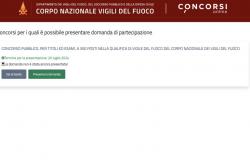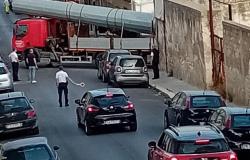Farmers will soon return their livestock to pastures.
Also this year large carnivores, in particular the wolf, represent a threat to farmed animals.
As part of the “Alps Benchmarking” initiative, the Italian Chambers of Commerce of the Italian Alps discussed possible solutions for alpine farming.
They all agree on the need for concrete action at a political level.
The “Alps Benchmarking” initiative was launched in 2012 to promote a regular exchange of information and experiences between the Italian Chambers of Commerce in the Alpine area.
Representatives of the Chambers of Commerce of Sondrio, Bolzano, Trento, Cuneo, Treviso-Belluno and Valle d’Aosta meet regularly to discuss important topics for the Alpine provinces.
Among other things, the forest-wood supply chain and agriculture in general have recently been addressed in depth.
During two online meetings, the future of mountain farming and the challenges associated with coexistence with large carnivores were examined.
Representatives of the Chambers of Commerce reported the situation in their respective provinces and the risks linked to the presence of wolves and bears.
Furthermore, the results of studies on Alpine agriculture in Alto Adige and Lombardy were presented, followed by a debate on strategies for the protection of livestock in mountain pastures.
Right now, at the beginning of the summer mountain pasture season, political interventions are needed to stem the danger posed by large carnivores.
Reducing the current protection status of the wolf must be an absolute priority.
Giancarlo Virgilio, member of the Chamber of Commerce Council of Sondrio for the agricultural sector:
“ That of wild animals out of control is a serious situation, which together with the confirmation of the presence of packs of wolves in northern Lombardy and the increasing predation does not leave us indifferent: we believe it is imperative to protect the future of agriculture and livestock farming in the mountain areas, i.e. the most sensitive ones and at risk of abandonment.
The protection of the mountain pastures and the more peripheral areas cannot ignore the presence of young farmers who protect the territory.
These, with their care, prevent those serious hydrogeological disasters which, however, also occur in the territory and in areas where the presence of agricultural companies is absent or minor.
We are more than willing to have a discussion but the solution must be found and in a reasonably short time.”
Michl Ebner, President of the Bolzano Chamber of Commerce :
“ Especially in view of the imminent start of the mountain grazing season, the issue of large carnivores is particularly urgent and incisive political intervention at European and national level is essential.
Solutions are needed that take into account both the economic development of Alpine territories and the protection of grazing animals and the environment.
Beyond the usual management of species not at risk of extinction, to which the wolf has belonged for some time in Europe, it is essential to maintain areas free from its presence, similarly to what has been done for deer, roe deer and wild boars in various European countries.
This need is particularly evident especially in regions with a high concentration of mountain pastures and grazing areas”.
Fabiano Porcu, member of the Cuneo Chamber of Commerce Council for the agricultural sector:
“ Italy, unlike other countries, has not yet managed to adopt a ‘Wolf Conservation and Management Plan in Italy’.
Correct management of the wolf population in the Alps should pass through lines shared between all the countries involved in order to avoid different behaviours.
Furthermore, it must be taken into account that individual predators and packs settle and move across national borders.
We therefore believe that the management of this predator must be homogeneous and we hope that we can define a single strategy valid for all the territories involved.”







